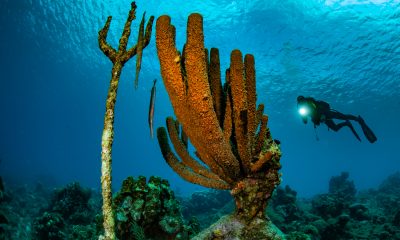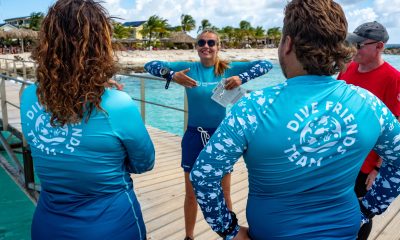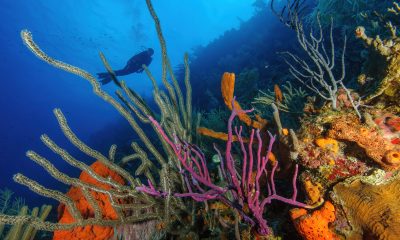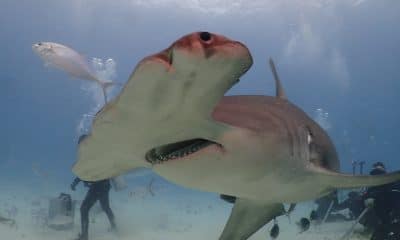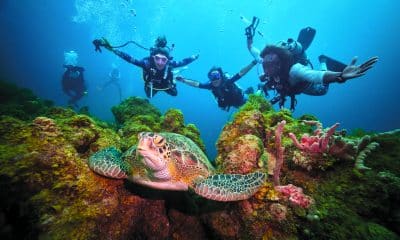Blogs
Hunting Lionfish Safely and Responsibly in Curaçao

Curaçao, a picturesque island in the southern Caribbean, is not only renowned for its stunning beaches and vibrant culture but also for its commitment to preserving its marine ecosystems. One of the key threats to these delicate ecosystems is the invasive lionfish. To combat this menace, responsible hunting practices are crucial.
In this comprehensive guide, we will explore how to hunt lionfish safely and responsibly in Curaçao, including the use of pole spears (the only legal method in Curaçao). We will provide you with the top 10 safe hunting practices, including the use of a Zookeeper. We will also address what to do if you are stung by a lionfish and emphasize the importance of consulting with local experts before embarking on your lionfish hunting adventure.
Why Safe and Responsible Lionfish Hunting is Important
Lionfish (Pterois spp.) are native to the Indo-Pacific region but have become invasive predators in the Caribbean, including the waters surrounding Curaçao. Their voracious appetite for native fish species and rapid reproduction rates poses a severe threat to the delicate balance of marine ecosystems in the region. The introduction of lionfish has led to a decline in native fish populations and the degradation of coral reefs.
To counteract the lionfish invasion, responsible hunting practices are essential. Hunting lionfish can help control their population and protect the native marine life of Curaçao’s waters. However, it is imperative to follow safe and responsible hunting techniques to minimize the impact on the environment and ensure the safety of both divers and the marine ecosystem.
Understanding the Pole Spear
In Curaçao, the only legal method for hunting lionfish is using a pole spear. It’s important to note that a pole spear is distinct from other spearfishing equipment, such as a Hawaiian sling or a spear gun with a trigger mechanism. The use of Hawaiian slings or spear guns with triggers is illegal in Curaçao for lionfish hunting due to safety and conservation concerns.
A pole spear consists of a long, slender pole with a pointed tip, often made of stainless steel or fiberglass, designed for precision and accuracy. Unlike a trigger-based spear gun, a pole spear requires the diver to manually draw back on a rubber band then release towards the target, providing a more controlled and selective approach to hunting.
How to Hunt Lionfish Using a Pole Spear Responsibly
When using a pole spear to hunt lionfish, it’s crucial to do so responsibly to ensure the safety of both the diver and the marine environment. Here are some essential guidelines on how to hunt lionfish using a pole spear responsibly:
- Safety First: Always prioritize safety when diving and hunting. Ensure you have the necessary training and experience for hunting lionfish. Consider the Lionfish Scuba Dive Experience offered by Ocean Encounters. This opportunity allows participants to learn under the expert guidance of local scuba diving professionals.
- Check Regulations: Familiarize yourself with local regulations and restrictions related to lionfish hunting in Curaçao. Respect no-take zones and marine protected areas.
- Target Only Lionfish: Use your pole spear exclusively for lionfish hunting. Do not attempt to spear any other species, as this can harm the fragile ecosystem.
- Aim for Precision: Approach your target lionfish carefully and aim for a precise shot to minimize the risk of injuring other marine life or damaging the coral reef.
- Use a Zookeeper: A Zookeeper is a specialized container designed to safely store and transport lionfish after capture. It prevents the lionfish’s venomous spines from causing harm and keeps them secure during the dive.
- Respect Lionfish Anatomy: Target the head of the lionfish and stay away from its venomous spines. Aim for a clean and humane kill to minimize suffering.
- Avoid Overhunting: Do not overhunt lionfish in a single dive. Limit the number of lionfish you catch to what you can safely handle and process.
- Practice Good Buoyancy: Maintain excellent buoyancy control to avoid inadvertently damaging the reef or stirring up sediment, which can harm marine life.
- Dispose Responsibly: Once you’ve caught lionfish, carefully place them in your Zookeeper. Do not release them back into the water, as they are invasive and harmful to the ecosystem.
- Report Your Catch: If applicable, report your lionfish catch to local authorities or organizations involved in lionfish management to contribute to data collection efforts.
In the Unlikely Event of a Lionfish Sting
While lionfish stings are rare, it’s essential to know how to respond if you or someone you are diving with is stung. Lionfish have venomous spines that can cause pain, swelling, and even more severe reactions in some cases. Here’s how to respond to a lionfish sting:
- Signal for Help: Notify your diving buddy or group immediately if you are stung.
- Remove Spines: If the spines are still embedded in the skin, carefully remove them with tweezers or a clean, sterile tool. Be cautious not to break the spines, as this can release more venom.
- Clean the Wound: Rinse the affected area with warm water to help alleviate pain and reduce the risk of infection.
- Pain Management: Over-the-counter pain relievers like ibuprofen or acetaminophen can help with pain and swelling. However, if you experience severe symptoms, seek medical attention promptly.
- Seek Medical Help: If the pain and swelling worsen or if you have an allergic reaction to the venom, seek medical assistance immediately.
Consult Local Lionfish Experts
Before embarking on a lionfish hunting adventure in Curaçao, it’s crucial to consult with local and responsible dive shops or organizations dedicated to lionfish management, such as Lionfish Caribbean.
These experts can provide valuable insights, tips, and up-to-date information on how to hunt lionfish safely and responsibly, hunting locations, safety measures, and environmental conservation efforts.
Start Planning your Next Caribbean Adventure
Knowing how to hunt lionfish safely and responsibly in Curaçao is not just an exciting underwater activity but also a crucial step in protecting the island’s marine ecosystems. By using a pole spear and adhering to the top 10 safe hunting practices, including the use of a Zookeeper, you can contribute to the control of the invasive lionfish population while preserving the delicate balance of Curaçao’s underwater world.
Remember that safety should always be your top priority when diving and hunting lionfish. In the unlikely event of a lionfish sting, knowing how to respond can make all the difference. By consulting with local experts and following ethical and legal guidelines, you can enjoy a rewarding and responsible lionfish hunting experience while safeguarding the beauty of Curaçao’s marine environment for generations to come. Please always dive safely and responsibly, and together, we can make a positive impact on Curaçao’s underwater world while learning how to hunt lionfish effectively.
Blogs
DAN Introduces Continuing Education for Dive Professionals
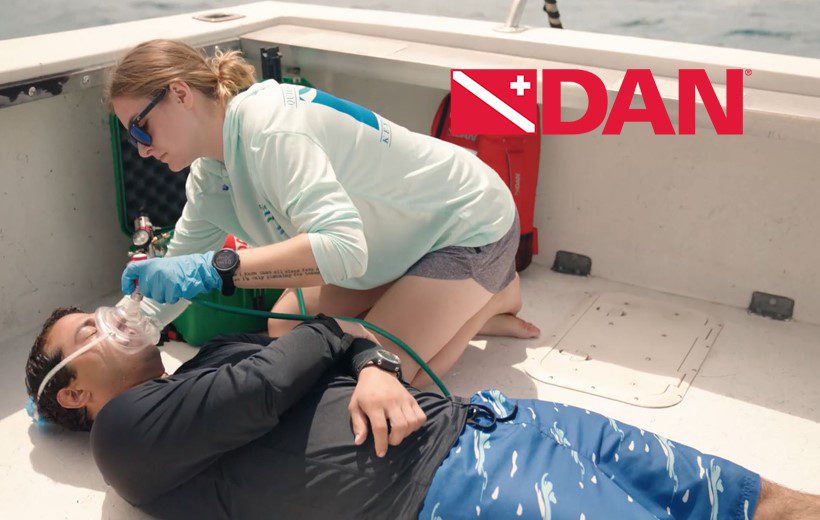
Divers Alert Network® (DAN®), the world’s leading dive safety organization, has launched a new program called Continuing Education for Dive Professionals. This free program focuses on risk mitigation and is now available to all dive professionals via DAN E-Learning. DAN expects this program will not only enhance divers’ safety but will also help reduce dive operators’ liability risk.
 To encourage participation, DAN is offering discounted premiums on individual professional liability and group professional liability insurance to all DAN members who complete the e-learning, which can be done in about an hour.
To encourage participation, DAN is offering discounted premiums on individual professional liability and group professional liability insurance to all DAN members who complete the e-learning, which can be done in about an hour.
Any DAN member who has completed the e-learning will be able to claim a discount of nearly 5% on their annual liability policy. This is in addition to the 5% discount that DAN members already receive. If you are on a group professional liability policy, your completion of the e-learning may count toward a discount on the group professional liability premium.
This year we partnered with Tec Clark to create the content of the program. In the future, we will combine Tec’s material with new material created by DAN.
Click here to learn more and access the e-learning.
To qualify for the discount, the e-learning must be completed before you renew your professional liability insurance policy. Refunds will not be given.
We hope you find this program educational and worthwhile. If you have any questions, or need assistance, please contact DAN at liabilityinsuance@dan.org.
Blogs
Heading out on the water this Summer? Watch for manatees
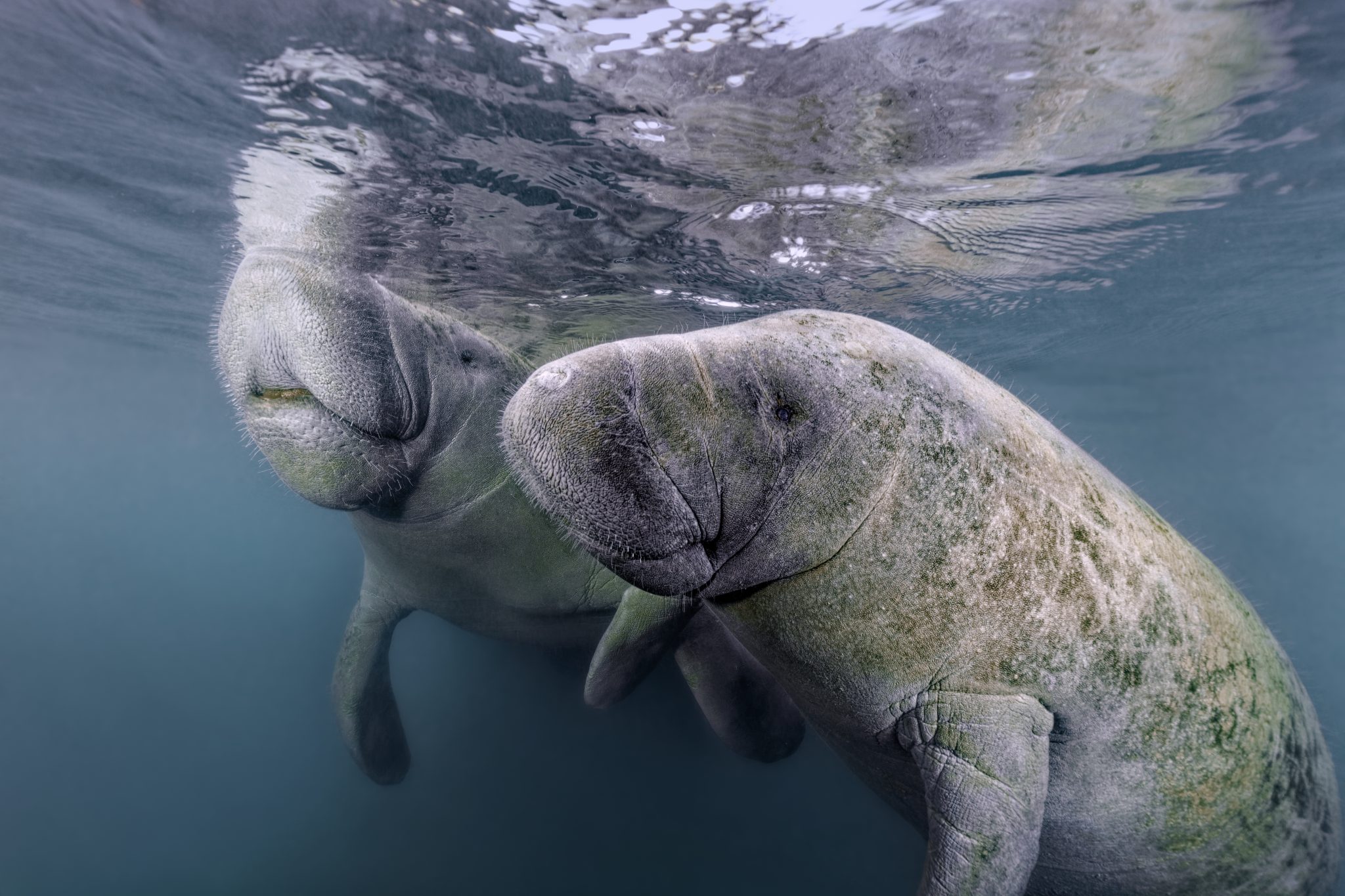
As National Safe Boating Week approaches, Save the Manatee® Club is urging boaters, and anyone that enjoys Florida’s waterways, to respect and protect the defenseless manatees that inhabit our shared waterways. From May 18 to 24, leading up to Memorial Day Weekend, the campaign aims to raise awareness about recreational boating safety and the importance of safeguarding imperiled manatees during the summer boating season. This week also emphasizes the importance of encouraging boaters to enroll in a boating safety course.
Manatees are semi-migratory marine mammals that are commonly found in shallow estuaries, bays, rivers, canals, and coastal areas throughout Florida and neighboring states. With some manatees venturing as far west as Texas and as far north as Massachusetts, collisions between these gentle giants and watercraft have become distressingly frequent. Boat propellers and high-speed collisions pose significant threats to manatees, often resulting in severe injuries or even death.
Save the Manatee Club is calling on all water enthusiasts to follow essential manatee safety tips to ensure the well-being of the imperiled manatee:
- Obey Speed Zone Signs: Familiarize yourself with and adhere to posted speed limits to prevent collisions with manatees.
- Reduce Glare with Polarized Sunglasses: Wear polarized sunglasses to enhance visibility and spot manatees below the water’s surface.
- Recognize Manatee Signs: Learn to identify signs of manatees in the area, such as swirls or flat spots on the water caused by their movements.
- Respect Manatee Sanctuaries: Keep a safe distance from posted manatee sanctuaries and avoid pursuing or harassing these marine mammals, as it is illegal and can disrupt their natural behaviors.
- Report Distressed Manatees: In Florida, promptly report distressed, injured, tagged, or orphaned manatees to the Florida Fish and Wildlife Conservation Commission (FWC) at 1-888-404-FWCC (3922). Outside of Florida, report sightings to the appropriate state agency or rescue organization. A list of agencies to contact is available at savethemanatee.org/report.
- Protect Seagrass Beds: Avoid boating over seagrass beds and shallow areas where manatees may be feeding. Stick to deep water channels while remaining vigilant, as manatees also utilize these channels during their travels.
- Dispose of Fishing Line Responsibly: Anglers should properly dispose of or recycle used fishing line to prevent entanglement hazards for manatees.
“Each year, National Safe Boating Week provides an excellent reminder for all of us to be aware that we share our waterways with vulnerable manatees,” emphasized Patrick Rose, Aquatic Biologist and Executive Director of Save the Manatee Club. “With the recent Unusual Mortality Event on Florida’s East Coast claiming an alarming number of manatees’ lives, it is more crucial than ever to prevent preventable deaths caused by watercraft collisions. By following manatee-safe boating guidelines, such as obeying speed zones and remaining vigilant for manatees, everyone on the water can contribute to the protection of these gentle giants.”
Save the Manatee Club offers a range of free materials to help safeguard manatees and raise awareness about manatee-safe boating practices. Shoreline property owners and park or marina managers can order aluminum dock signs to alert others about the presence of manatees in their areas. Boaters and paddlers can request packets containing a safety tips card, a waterproof boat banner, and a decal to display on their vessels, providing the number to report manatees in distress. To view and request these materials, visit savethemanatee.org/resources. Save the Manatee Club will also be hosting a live webinar for National Safe Boating Week on Tuesday, May 21st at 6pm EST. To register, visit savethemanatee.org/register.
-

 Marine Life & Conservation Blogs3 months ago
Marine Life & Conservation Blogs3 months agoCreature Feature: Swell Sharks
-

 Gear Reviews4 weeks ago
Gear Reviews4 weeks agoGEAR REVIEW – Revolutionising Diving Comfort: The Sharkskin T2 Chillproof Suit
-

 Blogs2 months ago
Blogs2 months agoMurex Resorts: Passport to Paradise!
-

 Blogs3 months ago
Blogs3 months agoDiver Discovering Whale Skeletons Beneath Ice Judged World’s Best Underwater Photograph
-

 News3 months ago
News3 months agoPADI Teams Up with Wellness Brand Neuro to Drive Ocean Change and Create a Blue State of Mind
-

 Marine Life & Conservation2 months ago
Marine Life & Conservation2 months agoSave the Manatee Club launches brand new webcams at Silver Springs State Park, Florida
-
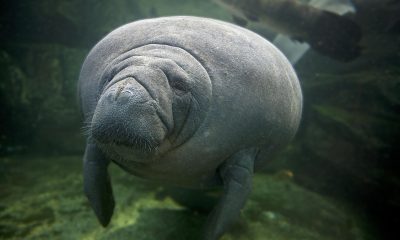
 Blogs2 months ago
Blogs2 months agoSeagrass Awareness Month brings critical food source for Manatees to centre stage
-

 Blogs1 month ago
Blogs1 month agoSOMABAY: Scubaverse interviews Wolfgang Clausen, General Manager, ORCA Dive Clubs





